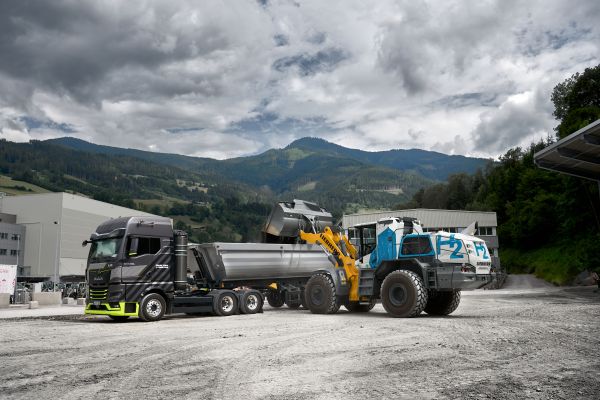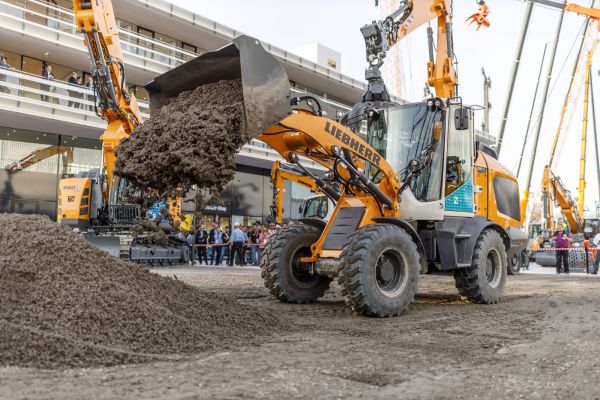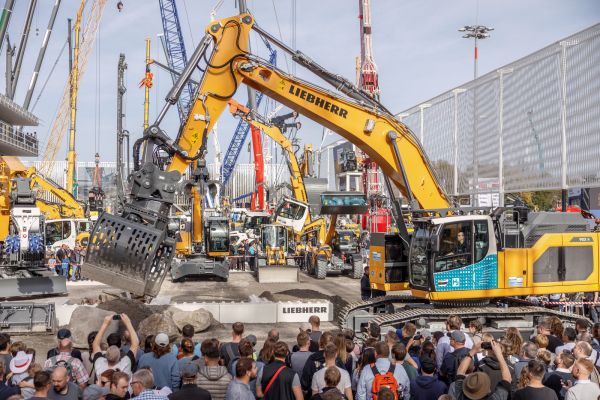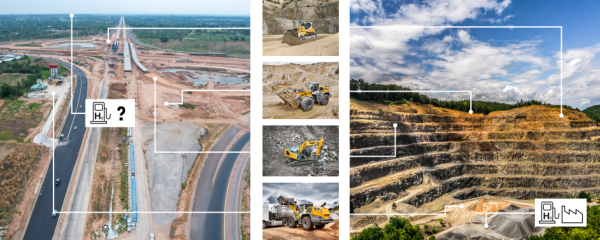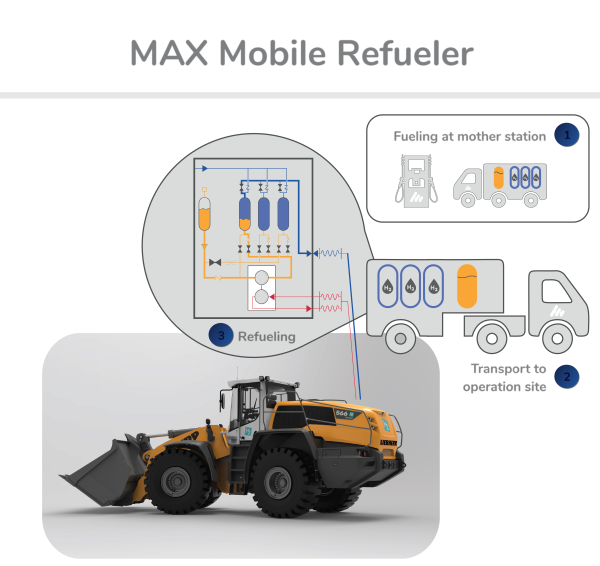IEA AMF Task 65: Powertrain options for non-road mobile machinery (NRMM)
Short Description
Gaining a foothold for alternative energy sources in non-road mobile machinery and special-purpose vehicles is proving much more difficult for hydrogen drives than for battery-electric solutions. While the technical and standardisation requirements for battery-powered vehicles (BEV) have been prepared over many years in the automotive sector, hydrogen drives have some catching up to do.
Energy demand analyses for construction machinery based on vehicle fleet data show the limits of battery-electric solutions and point to the need to use other alternative CO2-free solutions where hydrogen will play a major role.
Large construction machines are particularly suitable for the use of hydrogen drives in the form of the hydrogen engine (H2-ICE) and later the fuel cell (FCEV), which is why the development of hydrogen engines as first-generation hydrogen drives is already well advanced at the leading combustion engine manufacturers.
Thus, Liebherr has started to develop the first large construction machines with hydrogen drives in order to be able to offer the first generation of hydrogen propelled large wheel loaders and large crawler excavators with hydrogen engines in a few years, so that the expertise of notified bodies and other hydrogen related knowledge carriers can also be brought into the task on the basis of these developments.
In the meantime, several promising H2 demonstrators have already been presented by the manufacturers of mobile machinery and special purpose vehicles. In addition, a worth mentioning number of conversion solutions is also appearing, characterised by the installation of a hydrogen drive in a former conventional machine by conversion companies. These ambitious projects were made possible at least in part by funding, but without yet pursuing the claim of a concrete regulatory compliance perspective for a later series production machine.
The collaboration in the task will result in robust approaches to regulation conformity for non-road mobile machines and special purpose vehicles for later H2 series production machines, as well as compliance approaches for highly mobile H2 refuelling. This will enable added value to be created at an early stage in the H2 technology development of e. g. construction and agricultural machinery so that conformity and approval aspects can be taken into account for later series production machines. In the development of machine and vehicle concepts, it is thus possible to pursue a significantly higher standard of greater proximity to later series production machine than it was possible with the demonstrators with H2 that have been developed to date.
The aim is to reach agreement with like-minded manufacturers and knowledge carriers in the academic and commercial environment on a common approach to creating the approval and conformity requirements for hydrogen drives in non-road mobile machinery and special purpose vehicles, which is the basis for being able to become active in the field of standardisation.
Project Images
Terms of use: The pictures listed underneath the header “Project Pictures” originate from the projects in the frame of the programmes City of Tomorrow, Building of Tomorrow and the IEA Research Cooperation. They may be used credited for non-commercial purposes under the Creative Commons License Attribution-NonCommercial (CC BY-NC).
Participants
Austria, Canada, Denmark, Finnland (Operating Agent), Germany, Sweden, USA
Contact Address
Christoph Kiegerl
Liebherr-Werk Bischofshofen GmbH
Dr.-Hans-Liebherrstraße 4, 5500 Bischofshofen
E-Mail: christoph.kiegerl@liebherr.com

